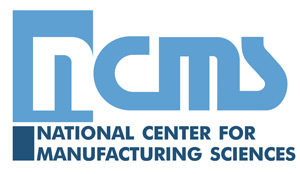Sources Sought: Development of A Blown Optical Fiber Machine for Use with Surface Ships and Submarines
NCMS is assisting the U.S. Navy in seeking a partner(s) with capabilities to develop a machine to blow individual optical fibers.
BACKGROUND
Public shipyards install various fiber optic systems with surface ships and submarines that sometimes include Blown Optical Fiber (BOF) tubes or BOF cables shipboard. Shipboard fibers are currently blown individually. BOF tubes and fibers are currently manufactured by General Cable. Machines currently being used are no longer manufactured, are in a limited supply, and cannot be purchased.
SOLUTION SOUGHT
Development of a machine that can be used at all public shipyards to blow individual optical fibers specifically for the Virginia Class submarine, Nimitz, and Ford Class Aircraft Carriers, This machine should be able to blow up to twelve individual fibers at a time using 100 PSI air; required capability distances are listed below.
MAXIMUM BLOWING DISTANCE CAPABILITY
- Air Volume: 100 LPM (3.5 CFM) and 150 LPM (5.3 CFM)
- Number of Fibers: 4, 8, 12
- Duct Size: 8mm
- Semi-Tortuous (Meters):
- 100 LPM: 0 – 600
- 150 LPM: 500 – 1000
- Non-Tortuous (Meters):
- 100 LPM: 500 – 1000
- 150 LPM: 500 – 1000
ADDITIONAL INFORMATION
- Current machine uses an air source of 145 PSI with an adjustable flow rate.
- Semi-tortuous: Bend diameter over 18” with up to 50, 90-degree bends over the route length.
- Non-tortuous: Bend diameter over 18” with up to 20, 90-degree bends over the route length.
RESPONSES
Responses to Sources Sought need to provide the following:
- Background of capability development
- Examples of where the capability is currently used if any
- A corporate presentation including engineering, manufacturing, and testing capabilities
- Cost Summary Form
Interested parties should complete the following form. All questions and/or inquiries can be addressed to opportunities@ncms.org
DISCLAIMER AND LEGAL INFORMATION
Responding to a Sources Sought, RFI or Survey does not guarantee that a CTMA Program Initiative will result. By submitting a response, you are agreeing to allow NCMS to share your information with the United States Government. All submissions containing proprietary information shall be marked accordingly.
Under the CTMA Program, the parties shall limit participation on the project to (1) U.S. citizens, (2) lawful permanent residents as defined by 8 U.S.C. 1101(a)(20), (3) other protected individuals as defined by 8 U.S.C. 1324b(a)(3) and (4) Canadian citizens (pursuant to the principles underlying the Canada-U.S. Free Trade Agreement), if such participation will involve visual inspection of the Technology, Intellectual Property or Technical Information, or oral exchanges of information about the foregoing. We also require the project participants to furnish NCMS, upon request, with proof of the citizenship status of its personnel participating on the project, including (1) U.S. citizens; (2) legal permanent residents; and (3) foreign nationals who are not permanent residents. In instances where it is necessary to involve foreign national employees in the visual inspection of the Technology, Intellectual Property, or Technical Information, or oral exchanges of information about the foregoing, the parties will be required to furnish to NCMS proof of appropriate valid export license, or technical assistance agreement, or exemption from licensing requirements (e.g. Canadian exemption) to the extent required by the International Traffic In Arms Regulations (“ITAR”) or the Export Administration Regulations (“EAR”). A copy of such license or agreement shall be furnished to NCMS before any disclosure of information to such foreign person. In the event a party believes that the subject matter of the project agreement is not covered by ITAR, that party may request a written waiver of the requirements of foreign national provision in the CTMA Agreement, which may be granted if the NCMS contracting officer agrees that ITAR does not cover the subject matter.
These requirements also apply to individuals who have dual citizenship status.
